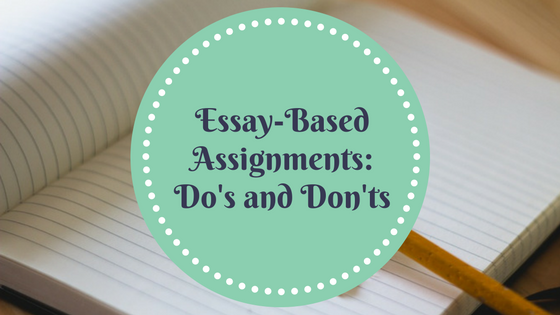
For many professors within the humanities, essays or research papers will be a necessary component of assessment. Out-of-class writing assignments can provide students the chance to carefully examine a topic and produce writing on it in a fashion similar to that of academic research. The first step to measuring students on these characteristics is developing an effective essay prompt.
What is an essay prompt? A good essay prompt will contain the following qualities: it (1) requires examinees to compose rather than select their response from a preexisting set, (2) elicits student responses that must consist of more than one paragraph, (3) allows for unique or original responses, and (4) requires the subjective judgment by a competent specialist to determine the quality and accuracy of responses.
Some “Do’s” for creating an effective essay prompt are the following:
Clearly define the intended learning outcome to be assessed by the essay. If you are attempting to measure a student’s ability to research, provide concrete and specific goals for students to meet that relate to research.
Provide a rubric. Rubrics can help align students’ and professors’ expectations of what the student should provide in the essay, making the daunting task of writing a paper more manageable and discrete for students.
Make the prompt challenging. The most effective essay questions require deep and original thinking, not mere regurgitation of facts.
Here are some “Don’ts”:
Make the prompt too lengthy. Often professors have a tendency to ask three to four separate questions in one essay prompt, making it impossible (or at the very least, difficult) for students to create a unified response while addressing such disparate topics.
Be vague or general. The more specific one can be with a prompt, the less likely it is that students will become overwhelmed. Instead of a general prompt like “Evaluate Shakespeare’s view of women in his plays,” which could cause paralysis in students as they become overwhelmed with sheer quantity of information, prompts can be made more specific by adding stricter requirements (to continue the example, by narrowing the focus to Macbeth). However, the more advanced students are, the more likely they are to be able to handle vaguer or more abstract prompts.

